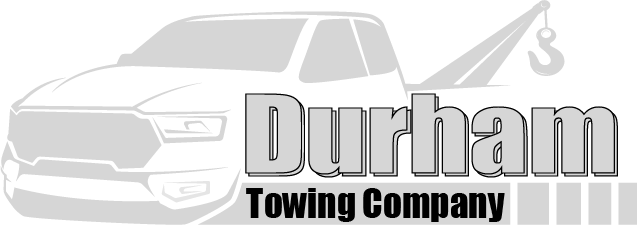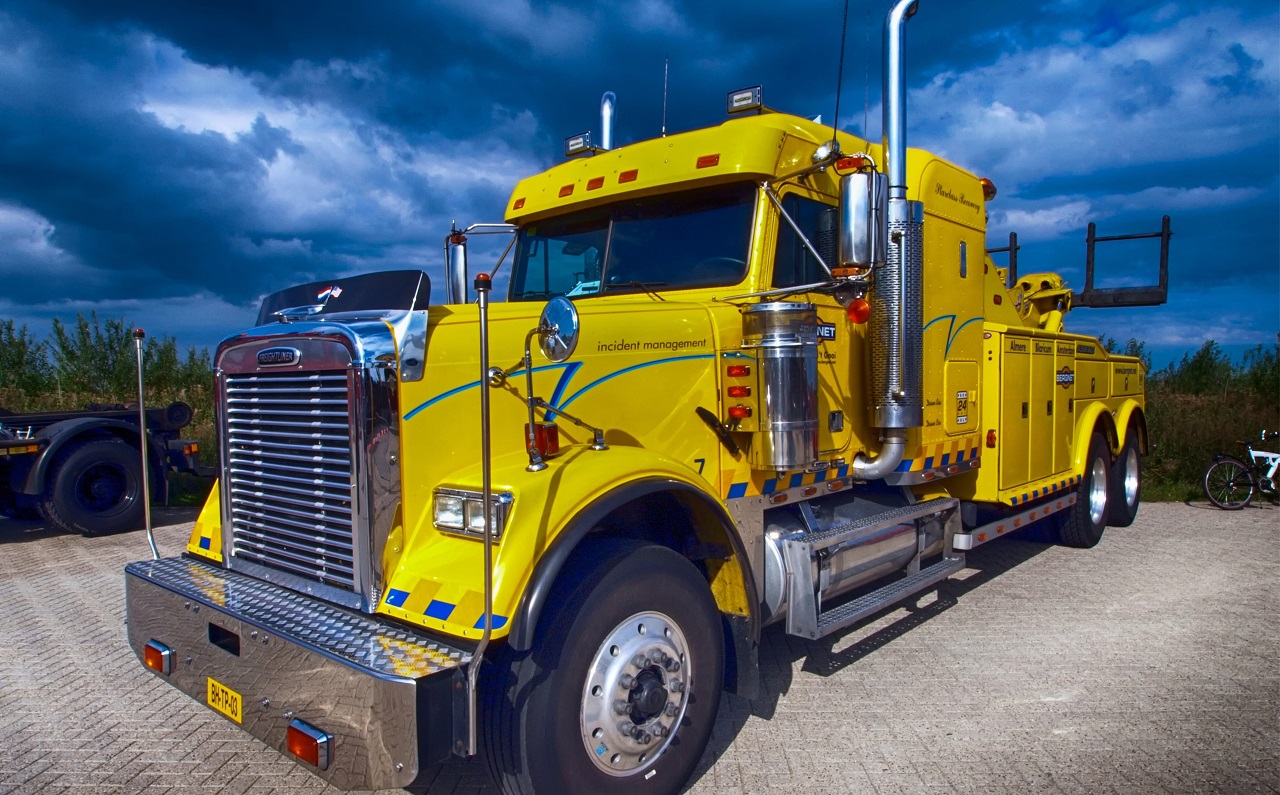There’s a bit of a misconception that any towing job can be handled with a sturdy hook and enough engine power. But when it comes to heavy-duty towing, it’s an entirely different ball game. Imagine a situation where a fully loaded semi-truck or a large piece of construction equipment breaks down in the middle of a busy highway or a remote construction site. The size, weight, and complexity of these vehicles and equipment require specialized knowledge, skills, and equipment to safely and efficiently manage their transportation.
Opting for professional heavy-duty towing services like Durham Towing Company is a decision that can save you from potential financial risks, damage to your equipment, and, most importantly, ensure the safety of everyone involved. It’s not just about getting the job done, it’s about getting it done right.
Our Fleet and Equipment
At Durham Towing Company, we take great pride in our diverse, well-maintained fleet of heavy-duty tow trucks and specialized equipment. Each vehicle and piece of equipment plays a unique role in ensuring we can handle any towing or transportation challenge that comes our way. Let’s take a closer look:
- Rotator Trucks: These are the heavy lifters of our fleet. With their rotating boom and powerful winch system, rotator trucks can lift and position large objects with extreme precision. They’re indispensable for recovery operations, such as lifting an overturned semi-truck or repositioning large pieces of construction machinery.
- Flatbed Trucks: Ideal for long-distance transportation of heavy machinery or vehicles, our flatbed trucks feature a large, flat surface for safe and secure load carrying. Their hydraulic tilt mechanism simplifies the loading and unloading process, minimizing the risk of damage during transportation.
- Heavy Wreckers: When there’s a large bus, RV, or semi-truck to tow, our heavy wreckers come into play. These trucks are designed to tow heavy loads over long distances using a robust underlift system. This system supports the weight of the towed vehicle, reducing the risk of damage.
- Heavy Duty Integrated Trucks: For the toughest recovery jobs, we rely on our heavy-duty integrated trucks. These trucks combine power and versatility, making them capable of handling even the most challenging recovery and heavy-duty towing tasks.
As for our specialized equipment, we offer:
- Wheel Lifts: These devices allow us to tow vehicles without touching the body, reducing the chance of cosmetic damage. They’re especially useful for towing cars and light trucks.
- Skates and Dollies: When a vehicle can’t roll on its own wheels (due to a flat tire or damage), we use skates and dollies. These tools allow us to safely move vehicles onto our tow trucks.
- Air Cushion Recovery System: This equipment is used for uprighting overturned vehicles. It uses high-pressure airbags to gently lift and right the vehicle, minimizing additional damage.
This diverse and specialized fleet and equipment ensure that no matter what your heavy-duty towing and transportation needs are, we’ve got the right tool for the job.
Safety Measures in Heavy Duty Towing
Safety is paramount in our line of work. Every towing job comes with its unique set of challenges and potential hazards, and we’re committed to mitigating those risks. We adhere to stringent safety protocols, from the way we secure the vehicles and equipment on our trucks, to the routes we choose for transportation.
Moreover, our team is trained to handle unexpected situations, like changing weather conditions or road emergencies, ensuring that even when things don’t go as planned, we’re prepared.
Training and Qualifications of Our Heavy Duty Towing Team
Behind every successful towing job is a team of highly skilled and dedicated professionals. Our team members undergo rigorous training and are equipped with the necessary qualifications to operate our heavy-duty tow trucks and handle commercial towing jobs.
Not only are they skilled in operating our state-of-the-art equipment, but they also excel at problem-solving on the spot, coordinating effectively as a team, and maintaining calm and professionalism under pressure.
How to Prepare for Heavy Equipment Transportation
When it comes to moving heavy machinery or equipment, a bit of preparation can go a long way in ensuring a smooth and efficient transportation process. In this section, we’ll walk you through the pre-work we recommend customers perform to prepare your heavy equipment for transportation – this work help ensure your equipment arrives at its destination in the same condition it left.
- Detail Your Equipment Specifications:
Start by providing a comprehensive list of your equipment’s specifications. This should include accurate dimensions (height, width, and length), weight, and any specific handling instructions. The more information you provide, the better the towing company can plan for the transportation. - Inspect the Equipment:
Conduct a thorough inspection of the equipment. Check for any existing damage and document it with photos if possible. This will be essential for tracking any potential damage that might occur during transportation. - Secure or Remove Loose Parts:
Next, take the time to secure or remove any loose parts on the equipment. This includes items like attachments, accessories, or loose panels. Securing or removing these parts can prevent them from moving during transit, which could potentially cause damage. - Prepare for Loading:
If your equipment has specific loading requirements, make sure to communicate these to the towing company in advance. You should also prepare the equipment for loading by aligning it for easy access and movement onto the towing vehicle. - Check Fluid Levels and Battery:
Ensure all fluid levels are topped up, and the battery is fully charged. This will help to prevent any potential mechanical issues during loading and unloading. - Arrange for Necessary Permits:
For certain types of heavy equipment, special movement permits may be required due to their size or weight. Check with your local transport authority or your towing company to ensure all necessary permits are in place before the day of the move. - Plan Your Schedule:
Finally, coordinate the schedule for the move with your towing company. Heavy equipment transportation can be influenced by various factors such as traffic, weather conditions, and route restrictions. Therefore, ensure you have a flexible window of time for the transportation to take place.
Call Durham Towing Company for Heavy Duty Pros
Heavy equipment transportation is a task that demands meticulous planning, safety considerations, and specialized handling. By following this detailed, step-by-step guide, you can ensure your equipment is prepared for the journey ahead. Remember, the key to successful heavy equipment transportation lies in the details and choosing the right professionals to handle the job.
As the Durham Towing Company, we are well-equipped and experienced to handle your heavy-duty towing and transportation needs. Our diverse fleet of specialized vehicles and our dedicated team of trained professionals are ready to assist you every step of the way. We understand the value of your equipment and the importance of getting it safely to its destination.
For your heavy equipment transportation needs in Durham, trust the experts at Durham Towing Company. Give us a call today at (919) 805-3344 and experience the peace of mind that comes from knowing your equipment is in good hands.

